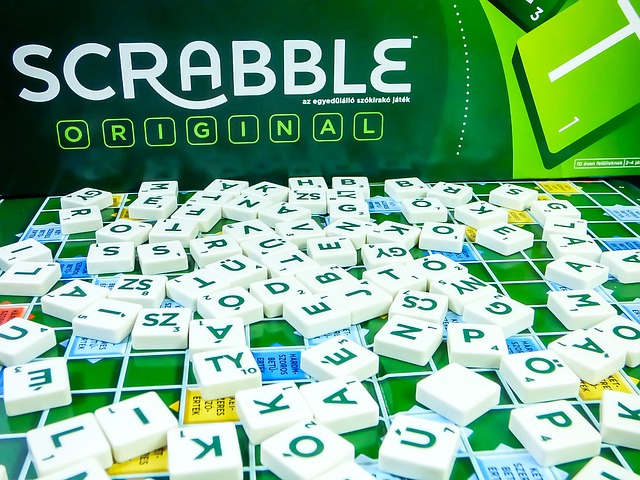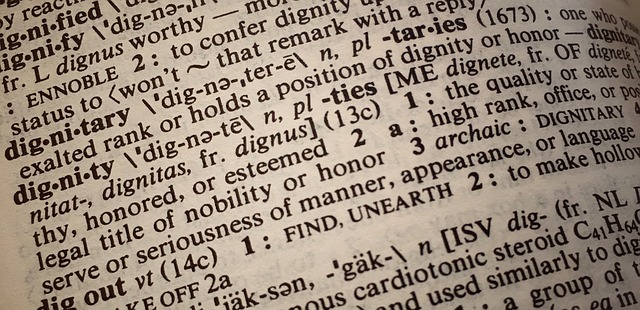Hey!
Want to know a secret?
It’s about spelling, vocabulary, and reading.
You are not born with an impressive English vocabulary. No one is more disposed to developing an impressive vocabulary than anyone else.
And why wouldn’t anyone want an impressive vocabulary? A person that is well versed in the English language can command a better salary in the world. They are looked at with respect and admiration or their peers.
The question is not “why,” but how to improve English vocabulary!
Doors closed for other people are opened for those who grasp the English language.
But it is not an elite club that is destined to command the language. Euclid, the Greek philosopher that founded Geometry said this to a young pupil that was struggling with math,
“There is no royal road to Geometry.”
The same thing applies to learning the English language.
“There is no royal road to English.”
You too can have an impressive vocabulary.
All it needs is practice.
I can hear you yawning already, more flashcards, more boring spelling exercises, more silly and time-wasting tools.
No, there is none of that here.
You see, the brain is a muscle. And to improve the brain’s functions, you need to work it like you would deltoids or biceps.
You must use your mind to expand it.
So, it stands to reason that you must use your vocabulary to expand it.
And it doesn’t have to be boring things; it can just as easily be the fun things, the exciting things.
It can be ALL the things!
So, here are Twenty-Five everyday things that you can do to build your reading and spelling skills to master the spelling test words.
Now you can take part in online Spelling Bee too! Check out the SBO section on Spellquiz today! This real-time game is great for practicing the 9th grade spelling bee words or the 11th grade spelling bee words.
How Many Words Should You Know? The Average English Vocabulary
Before I give you some tips on how to improve vocabulary, let me ask you something, how many words do you know?
Do you think you have an extensive vocabulary? First, you need to know your current vocabulary level with an English vocabulary quiz!
Where would you rate your vocabulary? Extensive? Fair? Building? Lacking? There are fine quality tests that can help you to find the answer.
Before you answer that, you should probably look at some of the statistics that would help you assume the average vocabulary of a common native English speaker.
The Economist, the famous UK-magazine tried to figure out the average vocabulary of a regular native English. So, does the research suggest?
An adult native speaker typically has a word-collection of 20,000 to somewhere around 35,000 words.
Yes, that’s a lot!
Even the number is surprisingly high for the kids. The report suggests that an 8-year-old has a vocabulary of 10,000 words while for kids of 4-years-old, the number is about 5,000 words.

On the other hand, adult foreigners have an English vocabulary of about 4,500 words. If a foreigner starts living in an English speaking country, the vocabulary could reach somewhere above the 10,000 words mark.
So, where do you think you are based on that?
Amazing, no matter how many words you know, it is only a fraction of the words that exist in the English language, so do not feel bad.
So, you should ask your kids to have a better grasp at the sight words as these are the most commonly seen words in the English language. Plus, it would help the students with spelling test words too.
Think fast!
How many words do you think there are in the English language?
How Many Words are in the English Language?
Well, the answer depends on who you ask.
A good way to find the answer would be looking at the famous dictionaries. After all, they should contain all the words of the English language, shouldn’t they?
| Dictionary Name | Word Collection |
| The Second Edition of the 20-volume Oxford English Dictionary | 171,476 |
| Webster’s Third New International Dictionary (1993) | 470,000 |
| The Compact Oxford English Dictionary | 500,000 |
| Longman Dictionary of Contemporary English 6th Edition | 230,000 |
You then have to figure in words that are considered regional dialect and slang. Estimates put that at around another 75,000 to 100,000 words.
That means that altogether, depending on how and who you count, there are between a quarter-million and six-hundred thousand words in the English language.
The above-average English speaker at 30,000 words has, at best, a little over ten percent of the English language in their vocabulary. When you figure out that their active vocabulary is about a third of that, there is a lot of room to learn more.
So, let’s go with the number that the average, everyday person has about 10,000 words in their active vocabulary and there are certain great answers for how to improve vocabulary.
Now you are wondering, what is the difference between active vocabulary and vocabulary?
Active vocabulary is the words that a person uses on a daily basis. Vocabulary itself are words a person recognizes without relying on context clues or running for a dictionary.
You are probably thinking 10,000? That’s it? I have to know more than that!
Wait. I am not even sure I know that many!
Learning with Games
I can not hammer this one home enough.
Learning should be fun. And it can be.
Think about kids and how fast they adjust to new technology. They are not born with a tech gene that goes away when we become adults.
They learn by having fun.
When it involves competition. When enjoyment and gaming come into play, we learn without realizing it.
So, that would be my first suggestion.
If you have the ability, play games with friends, with family. Not only will you build your spelling and your vocabulary, but you can also use the time to bond and just have a good time in general. Now, you can learn idioms examples, and fun quizzes at SpellQuiz too!

Anyone up for a good game of scrabble? Password anyone? How about some hangman to pass the time?
Any word game can become a party with the right people.
All alone? Want some games to play during the downtimes at work or to relax during the day?
Try SpellQuiz!
Or go to your Android or Apple store for your phone and look for all sorts of crossword puzzles (if you are really adventurous, buy crossword puzzle books and have at it!), word search, or any number of app games to play.
Play games and win knowledge as a valuable prize!
Use College Preparation Tests
You are probably thinking that I have lost my mind,
College Prep tests?
Those are way above my level.
Are they?
Hear me out. One, you really do not know what level you are capable of reaching until you push yourself way beyond your comfort zone. Two, what better way to learn an impressive new vocabulary, a broad and rich lexicon of words than to force yourself to work and think on a much higher plane of thought.

So, do this. Grab the SAT and ACT practice tests. You can find them online, you can buy them in bookstores (there are even college-level vocabulary and spelling quizzes here at SpellQuiz!).
Take them.
There is a good chance that you will bomb them on your first few tries. You might surprise yourself as well.
But, learn the words you do not know. Study them. Use them.
Keep taking the tests until you can pass them with ease.
Most of all, that dedication to leaving your comfort zone will pay off eventually.
Carry a Dictionary and Thesaurus with You
No, really.
Now before you go out and buy an Oxford Dictionary and a cart to wheel it around on, hear me out.
You can do this two ways. One, you can buy a pocket dictionary or thesaurus; or, you can download a dictionary/thesaurus app on your smartphone.
Either one will work.

What I want you to do is this. Next time you are bored and need something to do, read a page or two and absorb the new words. Or, if you happen to see a word that you don’t recognize..look it up.
You will be amazed at how fast you will build your vocabulary.
And later on, you will see another use for this on how to improve vocabulary.
Read Every Day: A Trick that Never Fails!
Practice makes perfect.
If you are like me, you read novels and stories and wish that you could have the same command of the English language as those writers.
The way that they use words like artists uses colors and a brush to paint a picture in your mind.
And you find yourself wishing that you too could speak, or write as passionately as they do.
Heck, maybe not even that far. You would just like to be able to have their vocabulary.
So, the best way to how to improve vocabulary to the level of your favorite author is to read.

Read a lot. Read every day. Make it a point to have read a dozen pages or more. Make it your goal to sit, uninterrupted for so many minutes each day.
Read the newspaper, the Harry Potter book series, or maybe one or two weekly magazines.
Heck, read your daily horoscope.
But read something.
Before too long you will start to see your vocabulary expand and grow. Words you never dreamed would be in your lexicon will become second nature.
So, crack open a new book and get to it!
Mix Things Up: Diversify the Reading List
Above I talked about the importance of reading every day.
But there is one more piece to that advice.
Diversify.
Don’t be satisfied with sticking to one genre of writing. Don’t be satisfied with one grade level of a book. If today you can read a sixth-grade (after mastering spelling for grade 6) book with relative ease, then next week read a book suitable for a seventh-grader. of course, you need to master spelling for grade 7 first.

Don’t stay in a comfort zone. By constantly increasing the difficulty of your writing, you are going to learn new words. You are going to expand your lexicon.
You are going to improve your reading and writing ability.
So, try War and Peace instead of Dick and Jane
Practice New Words in Different Ways
If you are planning to add a new word into your vocabulary, you will have to use it 25 to 20 times at least before you can actually grasp it fully.
So that said, write down whatever new word you come across. Memorize its definition. commit it to memory. Use it every chance you can.
Emails, texts, casual conversations, anything.

The more you use the word, the more it will become common to your vocabulary.
After all, you will not build up your brain muscle unless you work out.
Think of this as pushups for your mind.
Take a Writing Course
I know what you are thinking.
Why? I don’t have what it takes to be a writer. Why take a class on being one?
Quite the opposite, for someone who looking for how to improve vocabulary, there is nothing better to try.
Think about it. Today, I bet if I asked you to write a short story, maybe a paragraph at most, you would probably write this:
See Dick, Jane, and Spot as they go to the park. Dick, Jane, and Spot are going to play.
About right?
Well, imagine what that sentence would look after some writing classes?
It was a sunny, blustery day when Dick, Jane, and their loyal dog spot were seen headed to the park. Though no one was certain, it was believed that they were headed there to play and enjoy the weather.
Both sentences said roughly the same thing. Yet you can see the difference.

The writing classes may never turn you into Ernest Hemmingway, but it may very well improve your vocabulary.
How to Improve Vocabulary with Mnemonics?
Remembering new words can be a tricky challenge. Basically, you can call them different memory techniques.
These techniques can come in handy while you are trying to add new words gradually in your vocabulary.
For example, you can think of funny sentences to remember new words – Island is land surrounded by water.
Have fun with it. You might even increase your vocabulary just by creating the mnemonics!
Makeup Associations
You see it in interviews, or visits to therapists.
They say, I will say a word and you say the first thing that comes to mind.
Its called word association. If someone says, big, in my mind the word huge comes to mind.
But this can be a practiced exercise as well.
For instance, when I say the word “far,” what comes to mind?
away? distant?
Well, what other words also mean far? Find it in the thesaurus you have now and find a word that you can associate with far. 
After a while, you will automatically see the word “far” and your mind will substitute the new word or words.
Make Your Own Vocabulary Tests
Yes, make your own vocabulary tests.
Keep track of all the new words you encounter in a week. All the ones that you encounter through word of the day, having to look them up, or just in reading.
Then at the end of the week, quiz yourself.
Write the words down and see how many of them you can write the definition down to without having to look it up. Do not worry if you have to check the dictionary on some of them. This is not a do or die test.
It is just checking for mastery.

Maybe even keep the words that you missed one week, and add it to your next quiz.
As an added bonus, maybe give yourself a reward for mastering the test.
Nothing like an ice cream sundae after a particular challenging English vocabulary test.
I think “victory” is also a sort of cherry on top!
Keep a Journal
Dear Diary, today I learned 5 new words and that I do not like Brussel sprouts.
It sounds kind of weird, but keeping a journal will help you build your vocabulary quite nicely. The reasons for that will shock English teachers but build your English Vocabulary.
You see, when you are not focused on doing anything other than write, you are not so concerned with grammar, or even making sense as much as you are interested in conveying your thoughts to paper.

So, when you are not concentrating on the other aspects of the written language, your mind becomes free to explore newer words.
After all, you are not impressing anyone other than yourself. Let the new words bounce off the walls. Take your English vocabulary for a spin!
Write!
Think back to the list about vocabulary and those that read. They learn far more words each day than those that only read occasionally or rarely. So, think about how many words you can add to your vocabulary by writing.
Now, no one is expecting you to be a J.K. Rowling or a Stephen King.
Pick a story that you would like to write, horror, fantasy, sci-fi, romance, general fiction. The pages are blank and you can fill them however you wish.

The true exercise here is to push your vocabulary and the words that you are adding to your vocabulary to the limit. Then pushing past that limit.
Do not go off expecting to write a bestseller, that is not the point. Though if you can, kudos! And send me an autographed copy!
Social Media: It Can be Blessing Too!
I know what you are thinking, have you seen how horrible spelling and grammar is on Facebook? And the text speak?
Surely, you must be joking!
No, I am definitely serious.
And do not call me Shirley.
All joking aside, remember we are trying to expand your active English vocabulary. Yes, it is important to be able to spell it correctly, but that is what a dictionary is for.

You will encounter new words, and by being introduced to them, expand and grow.
Plus, the Grammar police will give you feedback on any and all of your mistakes.
Believe me. English Teachers are tame and polite in comparison.
Additionally, it gives you the opportunity to use the words you are already adding to your vocabulary by other means. That usage reinforces the new words.
Hold Conversations!
There is another way that can expand your English vocabulary.
It is an archaic practice called holding a conversation with someone.
Yeah, sounds scary, sitting down with no smart device, face to face with another living being and talking to that person.
No filters, no messenger to hide behind.
Just you and a living, breathing person.
In real time.
Well, after you are over your social butterflies, know this, there is really no substitute for human interaction.

Sitting and talking with someone else gives you the ability to try out new words, learn words from other people.
And get instant feedback.
Have coffee, share an evening. Have lunch. Anything in a setting that allows you to soak up new words and to try out the words that you are learning.
Watch Television
Go from couch potato to eloquent speaker during one binge watch.
A billion channels, nothing may be on, but there are a lot of conversations going on. And chances are that you will encounter words in a thirty minute broadcast of Crossfire or Friends that you have never encountered before.
Channel surf, I find that watching documentaries, and more educational based programming introduces me to new words all the time, but you can find and enrich your English vocabulary on sitcoms and game shows just as easily.

Remember, adding to your vocabulary does not necessarily mean adding college-level polysyllable words.
It means expanding your horizons and adding new words to your English vocabulary.
Slang, buzz words, and even the simple words count. If not more so.
English is constantly evolving and absorbing new words, you should too.
Listen to the Radio
Next to conversations with other human beings, this is probably another example of tech history still being relevant.
Just joking.
How many hours a day do you spend on the bus? In a car? Traveling?
Or maybe just sitting around the house relaxing.
We live about a twenty-minute drive from the High School that my wife works at. We live in Texas, so we judge everything distance-related in time to get there, not miles. For instance, Houston is an hour and a half West of us; Austin and Dallas are about an eight-hour drive.
El Paso is over a day,
You get the idea. It is a long time to be sitting in a car.
Invariably, one of us has the radio on. When I drop my wife off, or pick her up, depending on the time of day, it is either NPR or a classic rock station.
I still encounter new words all the time.
Listen to the radio, grab an audiobook or two, CDs, Mp3, whatever.
Turn your commute time, your travel time into a productive English vocabulary builder.
Sing Along!
“Born in the U-S-A! I was BOORN in the U-S-A!”
Okay, I will never be Bruce Springsteen, but I love to sing in the shower and will sing along with songs I like (I admit that I do not particularly know all the words correctly. Or maybe I do, and the singer gets it wrong!)
In the car, at home, sometimes with friends if I feel comfortable enough. I have even bravely downloaded TikTok and play around with it.

The point is not being the next American Idol. the point is learning new words, and reinforcing the ones you know.
As I said much earlier, increasing your English vocabulary usage and size is the overall goal.
No one said that it did not have to be fun.
Belt out a tune or two!
“Stoooop in the name of love, before you break my heart!”
Make Synonym Word Lists
What is the difference between ill and sick?
On the surface, really nothing. We call those words synonyms. Basically, words that are interchangeable without changing the meaning of the sentence.
How many words in your English vocabulary do you think are synonyms of other words?
Ever thought about making a list of them?
Turn it into a challenge.

I did this once, I wrote the first one hundred words that came to mind.
I then went back to that list and tried to think of a synonym for each and every word. A few words had its synonym already on the list, and quite a few stumped me.
I then went to my trusty thesaurus and found synonyms for those words.
I now had a handy list of new words to absorb.
Try it yourself, maybe challenge friends to a duel to see who can find the most synonyms of particular words.
Have fun. Learn. Repeat.
Look up Words You Don’t Know
Every day we encounter more than a few words that we have no idea what they mean or are not sure.
Most of the time, we just move on. After all, what is one word?
Now multiply that by every time that you do that in a week or a month.
How many words are you missing out on?
Take that couple of minutes to look them up and use them.
You would be surprised at how fast you add words to your English vocabulary.
Learn New Words Every Day
I have said this over and over, the mind is a muscle and needs to be exercised regularly.
You do not build biceps or legs by staying at the same weight level on your dumbbells. Only by increasing your load do you grow.
It is the same with your vocabulary unless you increase your load, you will not grow your English vocabulary.

Remember above we pointed out that well-read people add about 4 new words a day to their vocabulary. Flex your brain muscle, add a few pounds to the weights, do a couple more reps and sets.
The guys that girls ogle at the beach did not get buff by doing one rep a day. They did it by committing to a long term, disciplined regimen. You have to expect to do the same if you want to have an English vocabulary that has the librarians drooling.
Develop Practical English Vocabulary
What is the difference between ornamental and practical?
When you are learning our new words, are you able to use these words often, or even at all?
Do you know what a hoarder is?
Learning words that you cannot use every day or more than occasional usage, is word hoarding. It is taking up valuable brain space for words that would be more effective.
Instead of hundreds of Beanie Babies, you are hoarding words.
The words that you use should serve one purpose, to allow you to communicate effectively.
So, ditch the balderdash and go for simple, practical English Vocabulary. You can certainly try different vocabulary apps for students.
Move Words from Comprehensive to Expressive English Vocabulary
As I state before, you want an effective English vocabulary, something that you can use.
So, when you are picking the new words, ask yourself, can I use this word?
Words are used to express ideas. They are used to convey thought and emotion.
So ask yourself, can I used these words in a professional or personal setting?
When I write an article about homeschool, or about education, I aim to be comprehensive. That is for the simple fact that it is necessary for me to address a wide variety of situations and cases.

I do not know if the person is having their questions in Texas, England, or even Australia, so I have to write a broad and comprehensive guide.
That does not mean that I focus on having a broad or comprehensive vocabulary. I do not have extensive knowledge of medical, engineering or legal terms. When those words present themselves, I am quick to run for the dictionary.
And that is how it should be. Concentrate on building a vocabulary that you can use. Any item that you can not make use of, no matter how impressive, is practically useless.
As a friend of mine who designs cars said, it doesn’t matter how impressive the sport luxury car engine is, if it is too expensive to be used in a car, what use is it?
Visualize New Words
What image comes to mind when I say lightbulb?
Of course, most everyone can draw that mental picture of that.
And that is good, when you can automatically see an image when you see the word, you are well on your way to learning the word.
That way when you see the word on the page, you can picture it in your mind. It will help in placing the word in its proper context.
One of my passions for fiction books is about the 18th and 19th century Royal Navy. I love immersing myself in the Horatio Hornblower and Bolitho novels.

So, when I am reading about objects on the sailing ships, I often come across nautical terms and such that I am not too familiar with. Once I am able to define the word, I picture it in my head.
That helps me to orient myself and learn the word. After a while, I automatically can picture what I am reading about. It makes the narrative far more enjoyable than if I could not.
Not meaning to brag, but this landlubber can find his way around one of the King’s Ships.
Ask for Feedback
No one learns in a vacuum.
And you should not even try. The best way NOT to learn something is to assume that you will perfect it and there is no need for outside advice or help.
We all need to get feedback of some kind.
So, why would be building your English Vocabulary be any different?
Often times, we do not see our mistakes in usage or form. That is the time that we are the most arrogant about our abilities and skills.
It is also the time that we need that feedback most of all.
Do not be afraid to ask for it. Do not be leery of seeking out a second set of ears and eyes.
When I write, I can guarantee that before I finish that I will find at least a dozen errors in usage and spelling. And I will wager you anything that if I hand it off to someone, they will find a few more.
Not that I chose not to correct it, but because the human mind has a tendency to overlook little mistakes if it can understand what was trying to be spelled or said.
We do not grow unless we can see our mistakes and correct them.
Be Your Own Editor
This might sound a bit contradictory to the last one, but it is an important habit to get into.
Look over your own stuff. Double check your work.
It will help you catch usage problems, it will make you reach deep and find new and better English vocabulary words.
I have a bit of a confession to make, there are times that I will be typing an article and will not be able to spell a word right. Now, I use Grammarly to help me, but there are times that even Grammarly is lost at what I am trying to write.

I have rewritten entire sentences to accommodate the word I use instead. Now, if my English vocabulary was not deep enough, if I did not have a grasp on synonyms, then it would be impossible.
But editing my own work and looking over it has allowed me to grow my English vocabulary significantly.
Try it for yourself, see if you can use stronger words. See if you can improve the work you are doing by bringing together everything you have learned.
Final thoughts on How to Improve English Vocabulary
Communication is one of the things that make humans great.
We can express thoughts and ideas and vocalize needs, wants, fears, and hopes.
Language is a wonderful thing.
The English Language and its vocabulary can be a work of art.
Authors like Shakespeare, Chaucer, Rowling, Asimov have by using their vocabulary painted a picture in words that delights readers the world over.
Statesmen and politicians have uttered phrases and said great things that have impassioned men and women to rise above being ordinary and reach for greatness.
The good thing about a command of the English language and vocabulary is one simple fact.
You do not have to be Thomas Jefferson, You do not need to be Maya Angelou. No one is expecting you to be Winston Churchill or Miles Kohl. We will forgive you if you are not as articulate as John F. Kennedy or Martin Luther King.
You do not need to be any of those people to have an extensive and excellent vocabulary.
Well-spoken people also have ways to express themselves is poignant and powerful ways.
That can be you.
The great thing as that no one expects you to know every word in the English language. No one is even suggesting that you know most of it.
A respectable twenty to thirty thousand words still puts you well above the curve.
An average modern speaker has a much more diverse and rich vocabulary. Think of what you can accomplish with push the envelope just a little.
You have it in you to reach new heights. You can expand your English vocabulary.
